Contract talks between the Dallas Cowboys and the representatives for Dak Prescott must be heating up because over the last week, we’ve heard some numbers being thrown out in various reports. Last week it was reported that the Dallas Cowboys had offered their franchise quarterback a contract worth $30 million a year. Yesterday it was being reported that Dak Prescott has turned down that $30 million a year offer and is instead asking for $40 million a year.
This per Jane Slater of NFL Network.
I can confirm reports that QB Dak Prescott has, in fact, turned down 30M a year offer and is instead seeking 40M a year per source informed. #Cowboys
— Jane Slater (@SlaterNFL) August 12, 2019
Last night, Jori Epstein from USA Today had a report to the contrary. A source contradicted the report that the Dallas Cowboys quarterback asked for $40 million a year.
A source familiar with negotiations told @JoriEpstein that Dak Prescott's representatives are not asking for $40 million a year from the Cowboys. pic.twitter.com/H7Q9967e97
— USA TODAY Sports (@usatodaysports) August 13, 2019
Well, if you haven’t figured it out yet, it’s negotiation season.
If you’ve ever had any experience in a negotiation, whether it was for a house, a car, or something much smaller, you’ve learned that a negotiation is a dance.
Living overseas in a cultural context where everything is negotiable, you learn that items, services, and goods are priced much higher than they’re worth and more than the vendor’s willing to sell it, for several reasons.
First, if they price a good or service for what it’s worth, someone is going to come along and negotiate for a lower price. Because in this context, everything is negotiable. Taxi rates, payment for plumbers and electricians, house rent, and most non-food items. So, if I’m willing to sell something for x amount of dollars, I don’t tell customers that I’m willing to sell it for x. I price the item at x+50% so that in the negotiation, there’s room for me, the seller, to come down to a price that I’m willing to sell it for, if I have to come down at all.
The second reason you don’t set the price of an item at what you’re willing to sell it for is that someone may come along and be willing to buy it for what you’re selling it for. If I price something at x and someone who may not be as familiar with negotiating or with the prices of goods, like a tourist from the West, they may be likely to pay x. But if that same tourist comes along and the item is priced as x+100%, there’s a good chance that they’ll pay that price because we generally aren’t all that comfortable negotiating. In the U.S. we walk into a store, know what we want, find what we are looking for, read the price tag and then make a determination of whether we want to buy it or not. We don’t take the item to the cashier and demand a lower price. It’s why companies like CarMax have become so successful. They are profiting from the fact that we in the U.S. generally aren’t fond of negotiating for items.
The offers from the Dallas Cowboys and the report that Prescott is after $40 million a year are all a part of that delicate dance of negotiation.
Neither side is going to come to the table with the final number they’re willing to pay because if they did, they would lose any leverage in the negotiation. If the Dallas Cowboys came to the negotiation table and said that they’d be willing to pay Prescott $32 million a year, his representatives, as they should, would use that number to get the team to pay more. They could say, “you’re willing to do $32 million a year, what’s a couple more million?”
Conversely, if Prescott’s representatives came to the Dallas Cowboys and said they’d be willing to accept a deal for $32 million a year, Stephen Jones and the front office, would use that number to get Prescott to sign for less. The front office could come to Dak’s representatives and say, “you’re willing to take $32 million a year, what’s a couple million less?”
In Kenya, when you go to the Masai Market, the sellers have a pad of paper. When you ask how much something is, they pull out the pad of paper and they write their first number down and immediately cross it out. Then they ask for your number, they write it down, and then cross it out. They do this because they know that neither he or the buyer is going to accept the first price in the negotiation. This back and forth continues until you can find a number that you are both willing to accept, which is generally somewhere in the middle of the high and low starting points of the negotiation.
All that’s happening right now with Dak Prescott’s agents and Stephen Jones is that they are working that negotiation.
Dak Prescott, for as smart of a guy as he is, knows that he’s not going to get $40 million a year from the Dallas Cowboys. He knows that they wouldn’t pay him $5 million a year more than Russell Wilson and $7 million a year more than Aaron Rodgers. But also, because he’s a smart guy and has smart representation, then they know that in negotiations you go in asking for the moon while being willing to agree to less.
At the same time, the Dallas Cowboys are smart and they know that with Carson Wentz getting $32 million a year in new money on his recent extension, that they’ll be hard-pressed to get Dak Prescott’s contract extension to come in under that in new money. The reason they offered $30 million a year is that they’re hoping to get Prescott’s new extension done for less than $35 million a year and closer to the $32 million a year that Wentz received earlier this offseason.
If the report is accurate that the agents are asking for $10 million more than what the Cowboys offered, then you should know, that’s just an agent trying to get as much as he can for his client by keeping their end of the negotiation higher than what Prescott and his representatives are willing to agree to. They know that whatever figure they give the Dallas Cowboys’ front office would be a figure that they’d have to come down from in order to find terms that are agreeable to both sides. Just like the Cowboys know they’ll have to come up from $30 million a year.
Until a deal is done, we’ll continue hearing reports of where the two sides stand in the negotiations. Just know that both the organization and the representatives will continue to employ the media to help pass along their side of the negotiations. The Cowboys will have Dak Prescott locked up at some point, and if the chatter coming through the media covering the Dallas Cowboys is any indication, they’ll have an agreement in the next couple of weeks.
Whenever you hear reports or read stories about what each side is proposing for a contract extension, just keep in mind that it’s negotiation season.

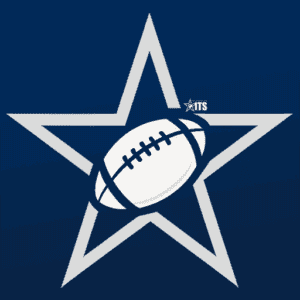


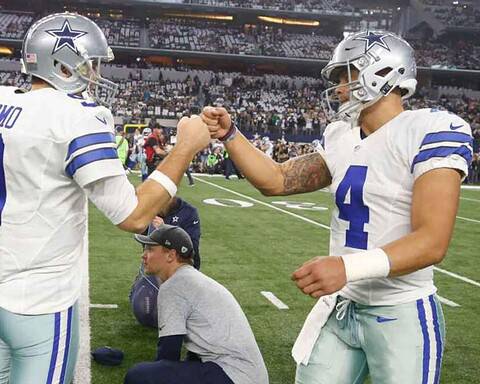
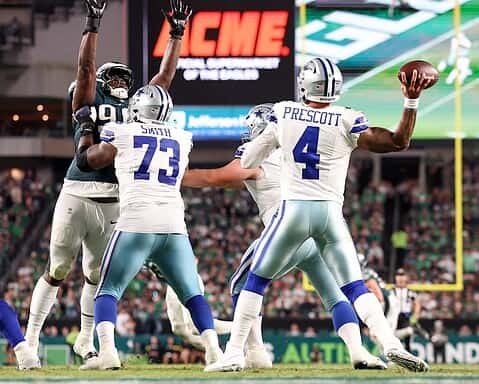
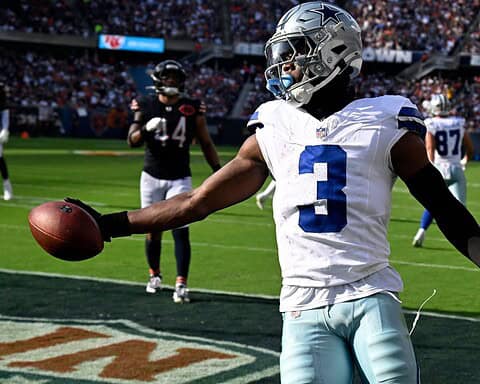


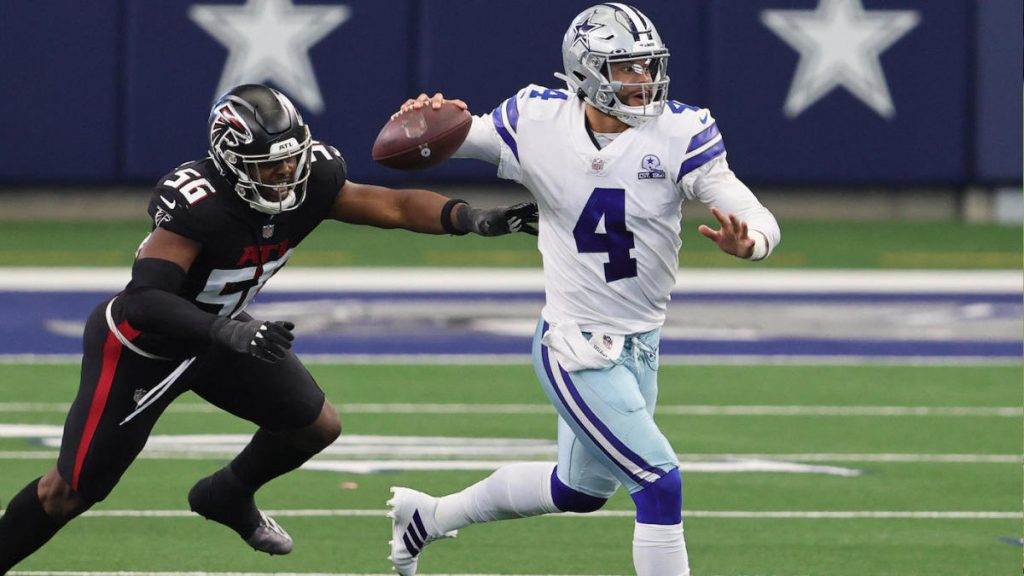
DAK is not worth 40 or 30 its value is lower is an average quarterback … to win those figures you must be able to play as TOM BRADY —
It’s honestly INSANE!!! this dude really thinks he’s worth 30-40 million per season. The balls on this dude are epic. The Cowboys have had one dominant season with Prescott under center (13-3 I believe). You can’t get it done in the playoffs, which is what it really comes down to. Do something, prove your worth, get to an NFC Championship at least than start demanding a contract you earned. YOU ARE NOT WORTH THIS MONEY. It’s embarrassing that you’re holding out for something you have business getting. Grow up, get better and let’s revisit this after you accomplish nothing so I can let every bum ass Cowboys fan know you’ll never lift that trophy with a second tier QB as yourself being the starter for Dallas.
Good Luck – you sure as shit need it
Hes absolutely work at least $33 mil a year. He never asked for $40 mil a year.